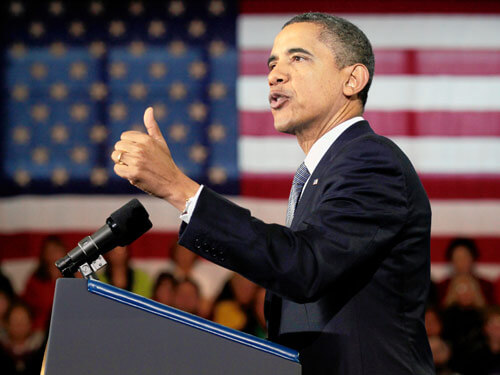Situations come up all the time which cue us to revisit the governmental form to which we subscribe, and it’s a pretty safe wager that most of us continue unshaken in the belief that this American experiment in democracy has lots to commend it. There’s a pride that Americans feel, justifiably so, when the “correctness” of the system rings through gloriously. After Richard Nixon’s resignation in 1974, a commentator spoke directly to the system’s ability to absorb even that kind of unprecedented shock: “One president resigned, another was sworn in, and not one soldier left the barracks.” Which cannot but bring to mind, among matters presidential, another instance of the American democratic model working spectacularly well – the historic election result of 2008.
It’s again a pretty fair assumption that Americans would think those special markers of the rock-solid pillars upon which stands this system of theirs more than adequately compensate for any imperfections. It would not have been the framers’ ultimate expectation, for sure, that election contests should evolve to where having a more generously endowed money trough than the other guy invariably causes an air of invincibility to settle in on a candidate. Even if the results sometimes defy that logic. One would think the crafters of the system also imagined it as evoking much more collegiality among those in the arena than we have latterly come to see.
The ongoing hullabaloo over the Obama administration’s health care overhaul has highlighted the area of our governing triad that one might deem most prone to precipitating hiccups in the order, namely, the judicial branch. The noise on the right about getting the health care reform act declared unconstitutional is eventually headed, we keep hearing, for the Supreme Court. Some lower court judges have already weighed in on it, the most recent ruling, out of Florida, concluding that Congress exceeded its authority with the health care measure, being the fourth judicial pronouncement so far on its constitutionality. One other ruling shared that Florida jurist’s opinion and two others rejected the “unconstitutional” argument.
What’s being dramatized in health care reform’s odyssey through the courts, as has been demonstrated so many times before, is the extent to which the judiciary, supposedly altogether separate and distinct from the other two politically defined branches, comes up short of that ideal. Two federal judges appointed by Republican presidents (Ronald Reagan and George W. Bush) have declared health care reform unconstitutional; two Democratic appointees (by Bill Clinton) have upheld its constitutionality. Of the four federal court rulings so far, two have come out of Virginia, with the Democratic and Republican appointees coming out, predictably, on opposite sides of the argument.
John Paul Stevens, the most recently retired Supreme Court justice, was one of the outstanding examples of a jurist standing tall enough in the role to take leave of the political path that landed him there, at least insofar as thinking himself bound to a certain ideological persuasion. Stevens, who had a 35-year tenure on the court, having been named by Gerald Ford, evidently disengaged from a political affiliation so much, in fact, that he reportedly declined comment when asked three years before his retirement, if he still considered himself a Republican. He was also on record as valuing the importance of “learning on the job” relative to his marathon high-court run.
For much of the time they served on the court together, Stevens and the now also retired David Souter stood out as two Republican appointees who were counterweights to the rigid ideological posture routinely assumed by the likes of William Rehnquist, Antonin Scalia and Clarence Thomas. But Stevens and Souter are clearly exceptions. Because one could just about telegraph which way a court will come down on a particular matter, based on the political profile of the judge or panel of judges involved, reluctance to uniformly characterize the judiciary as the system’s impartial arbiter is understandable.
The 11th Circuit Court in Atlanta, which figures to be a stop in the appeal process for the health care litigation, is said to be, as the New York Times reported, “one of the country’s most conservative branches.” If and when the 11th Circuit rules on this, the general expectation certainly wouldn’t be that the 11th Circuit’s opinion would constitute a surprise.
Upon health care reform’s getting to the high court, how “swing vote” Justice Anthony Kennedy leans could be the whole ball game. The breakdown of four “sure” liberal/moderate votes and four “sure” conservative votes remains intact, with Kennedy the wild card. And, we don’t know how much traction it will have but there’s even an attempt from the right to tilt the court more firmly conservative for this particular duel. When a demand was recently made to have Justice Elena Kagan, formerly of the Obama administration, not participate in health care deliberations, you knew word had gone out from the right wing’s high command to man all battle stations.
Founding idealists may have looked upon the vaunted judiciary as the branch of government fit to be impervious to rampant political influence. A romantic notion, that. Judges may not relish the bare-knuckled combat favored by executive and legislative types. But in the absence of a whole mess of John Paul Stevens incarnations, politics and the judicial branch aren’t about to part company anytime soon. Just check health care reform’s troubled trajectory.























